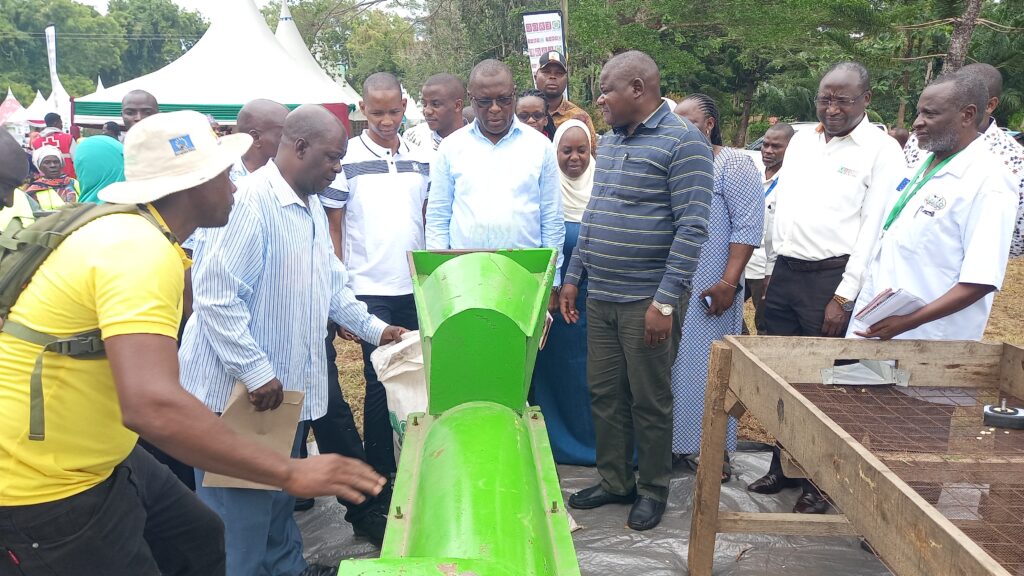BY SHABAN OMAR
Executive Director of the East Africa Grain Council Gerald Masila has encouraged small-scale farmers to form cooperatives to enhance food production and improve their livelihoods.
According to Masila, farmers who work in cooperatives have a better chance of thriving compared to those working independently.
He said that working together in cooperatives can lead to higher-quality food production and easier access to markets for their products.
“Small-scale farmers, let us join cooperatives to maximize our production, enhance food security, and prosperity,” he said.
Masila noted that, given the ongoing impacts of climate change and crop diseases, local farmers face limited chances of thriving on their own.
He added that the East Africa Grain Council will continue to looking for solutions affecting farmers and improve the value chain of seedlings to ensure farmers achieve food sufficiency and economic stability.
Masila said they remain committed to streamlining supportive policies, building capacity, and connecting farmers to markets through structured trade.
He made the remarks during the Coast Region Agribusiness Expo at Kalro in Matuga, Kwale County.
This is the third Agribusiness Expo, following the first two held in Tharaka Nithi and Machakos Counties.
The Expo was organized by EAGC and Solidaridad in partnership with county government among other partners.
The Agribusiness Expo brought together farmers from across the coastal counties and over 30 companies and agribusinesses including agro- dealers, financial institutions, post harvest management among others.
The event aimed to facilitate knowledge exchange, foster networking opportunities, and showcase innovative climate-smart solutions designed to enhance sustainable food systems in the coastal region.
The expo alos showcased demonstrations of the push-pull pest control method, an eco-friendly solution for managing pests, as well as minimum tillage practices designed to enhance soil health.
Masila highlighted that the Coastal Agribusiness Expo reflects the increasing acknowledgment of the region’s potential to bolster food security and drive economic growth.
Solidaridad Project Manager Boniface Mulandi stated that their Acting Now project has successfully empowered small-scale farmers in Kwale to enhance their yields.
He mentioned that they have trained local farmers in the semi-arid areas of Kinango on effective farming practices to boost food security and improve livelihoods.
Mulandi said they have introduced farmers to drip irrigation and provided them with certified, drought-resistant seedlings to enhance their crop yields.
“We have been working with farmers in the dry areas of Kinango. In addition to training, we support them with seeds, primarily for cereals and vegetables,” he said.
He noted that they emphasize inclusivity, with the majority of the farmers they support being youth and women.
Mulandi said that the trained group also shares their farming knowledge with other farmers, thereby increasing food production and contributing to the reduction of poverty.
Kwale Deputy Governor Chirema Kombo emphasized the county’s commitment to supporting the agricultural sector.
He said Kwale government is working closely with partners such as EAGC to foster an environment where agribusinesses can thrive.
Kombo noted that the county is investing in infrastructure, capacity building, and policy support to enable farmers to compete in regional and international markets by leveraging cross-border trade opportunities through the Lungalunga One Stop Border Post.
“We are committed to supporting the agricultural sector by empowering farmers with the necessary seeds and seedlings,” he said.
Kombo added that the county has been constructing dams in semi-arid areas to improve irrigation, thereby boosting food production and supporting agribusinesses


